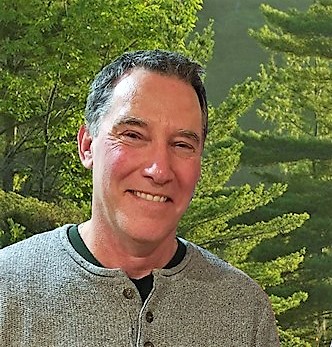On Our Path to Integrate our Watershed Management.
IWM is a necessary new approach to manage how we live, work and play in Muskoka. We need this new paradigm to remain economically prosperous while retaining a resilient natural environment.
By Kevin Trimble.

Integrated Watershed Management (IWM) is a necessary new approach to manage how we live, work and play in Muskoka. We need this new paradigm to remain economically prosperous while retaining a resilient natural environment.
Getting to IWM requires a lot of collaboration and a major culture shift for everyone who shares the Muskoka River Watershed, so progress can be hard to see. But Muskoka Watershed Council, the District of Muskoka, many of our local municipalities, First Nations, and community organizations have now built considerable momentum toward the next major steps toward IWM.
MWC started serious discussions about IWM in 2017. In 2018, a watershed hydrology team began looking at how water moves across our landscape and how to integrate that with issues around climate change, land development and cumulative impacts. MWC hosted a conference (“Connecting the Drops”) on watershed science, coincidentally during the peak of the 2019 flood. Aside from emergency responses and cleanup from the flood, the outcry from the community encouraged MWC to begin the process of persuading decision-makers to take a broader watershed perspective on solutions, rather than settle for short-sighted flood mitigation.
In 2020, MWC produced “A Case for Integrated Watershed Management in Muskoka” to set the stage for IWM here.
Concurrently, the Ministry of Environment, Conservation and Parks (MECP) announced a $5 million Muskoka River Watershed Conservation and Management Initiative (MRWCMI) late in 2018 and included four MWC members on a nine-member ministerial advisory committee (MWAG) which produced project recommendations, including watershed management, in 2020.
Sixteen separate studies were conducted under the MECP initiative, 12 by the District of Muskoka, which have added significantly to the watershed knowledge base. MWC members were part of an MECP Steering Committee for these 12 projects. One of the other three projects, conducted by MWC, surveyed successful case studies in collaborative watershed governance across North America. MWC also established a community roundtable during this process to gather community stakeholders to discuss IWM and to provide public input to the District’s projects.
The roundtable has run continuously since early 2021 and has since transformed into MWC’s IWM working group. This meets monthly to continue the dialogue and prioritize the many actions needed to bring about IWM in the Muskoka region. The committee is made up of 12 non-MWC and 12 MWC members, including several elected councillors.
One of the greatest challenges we face in initiating IWM is building an informed public. This will build the political will to seek innovative solutions. In the absence of a single government body representing the whole watershed, education, collaboration, and stakeholder buy-in are going to be vital to success.
To that end, MWC and its IWM working group have expended considerable volunteer effort. This has built interest across municipalities and First Nations to come together to work on IWM, while creating a knowledgeable and informed public that will support municipal efforts and join in the process.
Delegations have been made to all 13 local watershed municipalities and we are reaching out to First Nations. In February 2024, MWC held a conference tailored for municipal representatives. MWC is now supporting local municipalities that host follow-up meetings.
MWC’s 2024 Muskoka Summit on the Environment, our many published articles and social media pieces, and our presentations to Rotary clubs, large and small lake associations, business groups and other NGOs all advance the need for IWM. The IWM working group is developing new communications tools and outlining potential governance models and implementation strategies.
If you would like us to speak with your group, or want to help us in this venture, reach out via our website. Building the unique, collaborative governance we need is probably more complex than conducting the technical work needed to implement IWM itself, but MWC is dedicated to making this happen.

This is article #18 in First Steps on the Path to IWM, the current series of articles from Muskoka Watershed Council edited by Dr. Peter Sale. Author of this article is Kevin Trimble, retired aquatic ecologist, Muskoka resident and Director and a former Chair of MWC.
This article was originally published on April 12, 2025 on MuskokaRegion.com.
